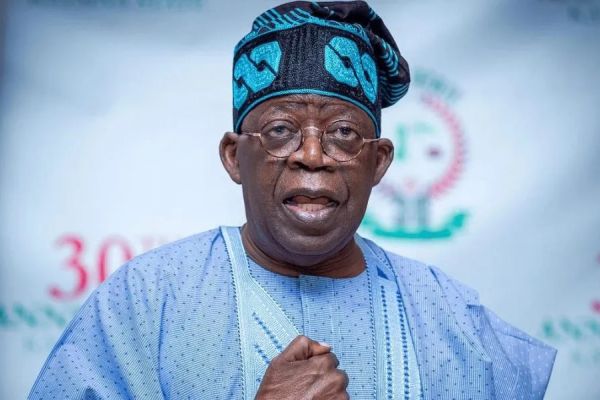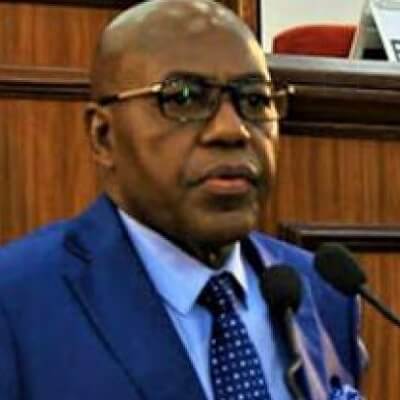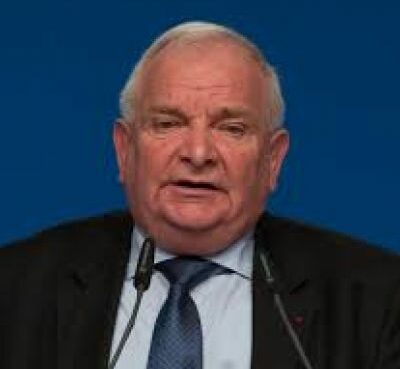70-year-old Bola Tinubu has been proclaimed the winner of Nigeria’s most contentious election since the end of the country’s military rule in 1999.
Mr. Tinubu, who is widely credited with reshaping Nigeria’s commercial hub Lagos, defeated a fractured opposition party and a youth-backed third-party candidate and is poised to replace President Muhammadu Buhari in May, barring a rerun prompted by the opposition’s allegations of election manipulation.
The most populous nation in Africa faces a deteriorating economy, pervasive insecurity, and soaring inflation. Many would expect Mr. Tinubu to hit the ground running when he assumes one of the most challenging positions in Africa.
Mr. Tinubu, who was once exiled by military dictator Sani Abacha, understands the significance of liberty and wears it as an insignia on his distinctive hat, a broken shackle in the shape of a horizontal figure eight.
The efforts of the pro-democracy National Democratic Coalition (Nadeco) organization, of which he was a part, placed him into Abacha’s crosshairs.
The opposition of organizations such as Nadeco and the death of Abacha in 1998 ushered in Nigeria’s democracy in 1999, and Mr. Tinubu, a former Mobil oil executive, felt entitled to the presidency.
The election results indicate that Mr. Tinubu, also known as “Jagaban” by his followers, will now focus on uniting a country that is withdrawing along regional and religious lines.
Yet, a job does not faze him. To convince Nigerians of his candidacy, he has emphasized his tenure as governor of Lagos from 1999 to 2007.
Under his administration, Lagos’s income skyrocketed as a result of substantial foreign investment, and a public transportation plan that established new lanes for speedy buses alleviated the city’s notorious daily traffic congestion.
Despite his assurances, the city of over 25 million inhabitants has not lived up to its status as a megacity.
Despite the wealth of the state, much of the public infrastructure is in a condition of disrepair; basic services such as water and public housing are deteriorating, and a light rail project begun under his reign has not been completed some 20 years later.
In addition, he has been accused of maintaining control over public funds despite leaving the government in 2007.
Every governor who has replaced him has been a protégé who adhered to a “great roadmap,” while the one who dared to forge his own course was promptly brought to heel with the assistance of influential transport union members.
In addition, Mr. Tinubu is accused of corruption, which he rejects.
Two years ago, Dapo Apara, an accountant at Alpha-beta, a company in which Mr. Tinubu allegedly holds interests through a business associate, accused him of exploiting the company for money laundering, fraud, tax evasion, and other unethical actions.
Mr. Tinubu was sued despite his and Alpha-denial beta’s of the charges, but in June of last year, the parties agreed to settle out of court.
Similar charges, including two appearances before Nigeria’s Code of Conduct Tribunal (CCT) on claims of violating the code of public officers – for which he was cleared – have led Mr. Tinubu’s opponents to assert that he is unfit for the position in a country where corruption is rampant.
During the previous election, a brazen display of a vehicle used by banks to transport money driving into his luxurious estate in the Ikoyi neighborhood of Lagos fueled suspicions that he was involved in vote-buying, which he made no effort to refute.
He stated,
“If I have money, I give it to the people for free, as long as it’s not to purchase votes.”
He is one of Nigeria’s wealthiest politicians, yet his fortune is questioned.
In December, he informed the BBC that he inherited some real estate that he later invested in, but in the past he claimed he become an “instant billionaire” while employed as an auditor at Deloitte & Touche.
He stated that he had saved $1.8m (£1.5m) from his salaries and other allowances, an amount roughly identical to that discovered in accounts linked to him in a 1993 dispute with US authorities.
In publicly accessible records, the US Department of Justice asserted that beginning in 1988, Bola Tinubu’s accounts contained the revenues from the selling of white heroin.
Agent Kevin Moss, who investigated the scheme, claimed that Mr. Tinubu worked for their principal suspect, Adegoboyega Akande.
While the court affirmed it had probable reason to suspect the money in the bank accounts was the result of drug trafficking, Mr. Tinubu and the others contested the claims, and the court never issued a final ruling regarding the origin of the money.
Mr. Tinubu, who was not charged individually in relation to the money, negotiated a compromise solution with the authorities and forfeited $460,000.
Mr. Tinubu also confronts questions about his health, and he once posted an eight-second video of himself pedaling an exercise bike as evidence of his continued existence.
Opponents assert that his age is catching up with him and refer to footage of several gaffes he has made at campaign rallies, where he can be difficult to understand.
Since President Umaru Yar’Adua died in office in 2010, many Nigerians are afraid of another president with health concerns, as well as the present president, who has spent extensive time receiving medical treatment abroad.
Yet, his supporters assert that he possesses the required stamina and is not competing for an Olympic spot.
Throughout the campaign, his choice of running mate sparked some controversy.
Mr. Tinubu, a Muslim from the south, chose Kashim Shettima, a Muslim from the north, as his running mate.
This decision was viewed as an attempt to appease Nigeria’s north, which has the largest voting bloc.
It raised the ire of many Christians, who said that it violated the tradition of mixed-faith presidential ticket candidates.
He defended his decision by stating that he prioritized expertise over fundamental interests.
He is regarded as the political “godfather” of the southwest region and its most prominent figure, who decides the distribution of power among his many followers.
In 2015, he referred to himself as a “talent hunter” who “places talents in office.”
His enormous political influence resulted in the merger of opposition groups in 2013 and the subsequent seizure of power from the then-ruling PDP in 2015 – a rare occurrence in Nigeria, where incumbents are rarely deposed.
During his party’s primary, when it appeared that Mr. Tinubu’s presidential ambitions were waning, he reminded Nigerians that he was largely responsible for installing President Muhammadu Buhari, despite the fact that the former military dictator had failed to win the presidency on multiple occasions.
Since then, Mr. Buhari’s aides have attempted to minimize the former governor’s impact on the 2015 election, but it is improbable that the current president would have been elected twice without Mr. Tinubu’s support.
Vice-President Yemi Osinbajo, who worked with Mr. Tinubu as a commissioner in Lagos, ran against his former boss for the APC nomination, which his followers viewed as a betrayal.
Having won the election, he would need to address a number of difficulties left by Mr. Buhari, including pervasive insecurity, high unemployment, rising inflation, and a country that is deeply split along ethnic lines.
The upcoming work is not difficult, but it is intimidating.
Also Read: Is Deadliest Catch’s Josh Harris Wed? Family And Wealth




